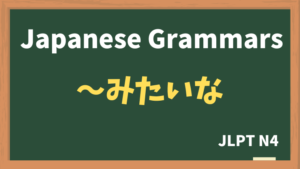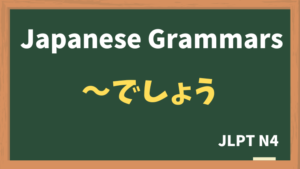
Explanation:〜みたいだ
fa-check-circleMeaning
Used to convey conjecture or guesswork based on observation, similar to "it seems like" or "it looks like" in English. This usage is often based on evidence perceived through the senses, implying that the speaker is making a reasoned guess rather than stating a confirmed fact.
fa-check-circleForm
Verb(plain form) + みたいだ
い-adjective(plain form)+ みたいだ
な-adjective + みたいだ
Noun + みたいだ
fa-check-circlePoints
- Expressing Assumptions: This expression is used to show that the speaker is making an assumption or guess based on what they’ve seen or heard, rather than confirmed information.
- Subjective Observation: "〜みたいだ" typically conveys a sense of personal impression or interpretation, adding a subjective nuance to the statement.
- Casual Tone: It is more casual compared to similar expressions like "ようだ" making it common in everyday conversation.
fa-check-circleJLPT Level
N4
Sample sentenes
あそこで 事故が あったみたいです。
It seems like there was an accident at the site.
彼は お腹が 空いているみたいです。
He seems hungry.
頭が 痛いし、体も あついし、熱が あるみたいだ。
I have a headache, feels hot, and seems to have a fever.
キムさんは 最近、忙しい みたいだ。
Tom seems to be busy lately.
二人は 最近 話さないし、別れた みたいだ。
They haven't been talking lately, and it seems like they broke up.
トムさん、すごく うれしそうだし、試験に 合格したみたいだね。
Tom seems really happy; it looks like he passed the exam.
あのレストランは 人が たくさん 並んでいるし、人気がある みたいです。
That restaurant seems to be popular; there are a lot of people lining up.
彼は 昨日 あまり 寝てないみたいだ。
He seems like he didn't sleep much yesterday.
Vocabulary
| Japanese | English | |
| 事故 | じこ | accident |
| 熱 | ねつ | fever |
| 別れる | わかれる | to break up |
| 並ぶ | ならぶ | to line up |






